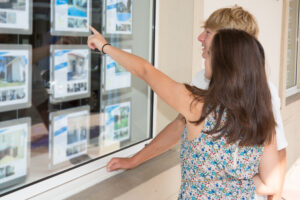What methods to use for safe online payments?

<?xml encoding=”utf-8″ ?????????>
In the current online culture and economy, it is critical for business owners to set up an online presence for their brands and themselves. Having an internet presence facilitates customer outreach, provides additional information about your product or service, and streamlines the purchasing process.
But, given the rise in cybercrime (credit card fraud, identity theft, etc.), you can give your customers the option to use safer payment types. Security threats surged by 31% between 2020 and 2021, according to Accenture’s Cybersecurity Resilience 2021 report.
Cybercrime: What is it?
Cybercrime is a type of illegal conduct that hackers and scammers use to target a single computer user, a computer network within the organization, or a networked computer. While some cybercriminals are naïve rookie hackers, most cybercriminals are a group of organized hackers who deploy cutting-edge tactics and tools.
Cybercrime takes many forms, some examples include credit card fraud, identity theft or fraud, corporate data theft (with the intention of selling it), and theft of card payment or financial information.
Safe online payment methods
One of the least secure places to shop or transact is online because there’s always a chance of data loss or vulnerability to hackers and scammers. You can, however, use a few techniques to make safer online payments, whether you are betting on recommended, regulated sites, making a purchase from an eCommerce platform, or sending money to friends or family.
You can use the following list of safer online payment options:
Credit cards
Credit cards are one of the safer online payment methods, as legal credit card companies have security features like fraud monitor systems and advanced encryption. You can dispute unauthorized purchases, and certain credit card companies offer extra security features like voice authentication, one-time pins (OTP), and even alphanumeric passwords.
Direct debit
This payment method allows users to schedule one-time or recurring payments. Even more than that, direct debits are covered by the Direct Debit Guarantee in the UK, meaning customers have some protection should something go wrong.
Debit cards
Like credit cards, debit cards are a well-known, safe online payment option that take money directly out of the bank account. Debit cards offer online payment security features such as fraud monitoring, just like credit cards do. They’re accepted at basically all online retailers, so they’re hugely convenient, too.
Digital wallets (payment apps) and prepaid cards
Digital wallets such as PayPal, Apple Pay, Google Pay, and Authorize.net are available for use at a growing number of websites. Numerous security features, such as fingerprint and facial recognition and two-factor or multi-factor authentication, are available with these digital wallets. The wallet allows users to keep their debit or credit cards and use them to make purchases online. On the other hand, prepaid cards allow you to load money directly onto the card and use it to make online purchases, so they can generally be used much like debit cards.
Cryptocurrency
Crypto is a private digital currency that is used for online transactions. The currency is protected by cryptographic systems; elliptic curve encryption, hashtagging, and public-private key pairs are all used in cryptocurrency. Cryptocurrencies are not yet widely accepted, but they do have their uses. For example, the gambling industry is readily adopting crypto thanks to the added security and borderless nature of transactions.
How to ensure online safety
No matter what barriers hackers are faced with, a determined and persistent hacker will always find a method to obtain your data. Not even the most sophisticated encryptions can defeat them. You may, however, take a few precautions to decrease the likelihood of being a victim of cyber theft.
SSL/TLS secure encrypted sitesVerify that the website is secure before proceeding or entering any personal information. A large number of websites use SSL/TLS encryption to protect user data. This kind of encryption is very hard to break, even with a powerful computer processor a hacker uses. A website that employs SSL/TLS encryption will consistently display the letters “HTTPS” or a padlock next to the link, signifying that it is an authentic website.
Use secure online gatewaysOnline payment gateways, such as PayPal and Authorize.net, are the intermediaries of online transactions. These websites protect your credit card and banking information because it won’t be necessary to enter it on the merchant site, allowing you to make secure payments without the need to register for an account on the merchant website. Consumers can use these platforms to make purchases from unsecure websites.
Use mobile data networks over public WiFiSince public networks are less secure than private networks, you can choose to use mobile data networks instead of public WiFi when making purchases outside of your home or place of employment. Hackers have the ability to infiltrate a hosting router, allowing them to see all data transmitted over that network.
Use a variety of passwordsEveryone is aware that using the same password for all of your online accounts is simpler, but this practice is not secure at all. You should change your passwords for all of your accounts—banking, online shopping, email, and social media—every six to twelve months.
Check the website history for breachesLook up any website breaches in the history before registering or entering any personal information. Companies are obligated by law to notify authorities of any data breaches. So, the company website, federal websites, and online news articles will all mention it.
Create separate accounts for online purchasesIt would be wise for you to open separate accounts for these kinds of payments if you enjoy shopping and making purchases online. This method keeps your primary account information safe from prying eyes.
Conclusion: Do your due diligence
When making payments or making purchases online, you cannot compromise on safety and prudence. You may lower your risk of fraud and make your personal information less accessible to hackers and con artists by utilizing the above-mentioned advice. Having done your homework, you can make that purchase knowing that you will be a little safer. You can also go above and beyond by making sure your firewall is up-to-date and by limiting your payment options to reliable online services.




